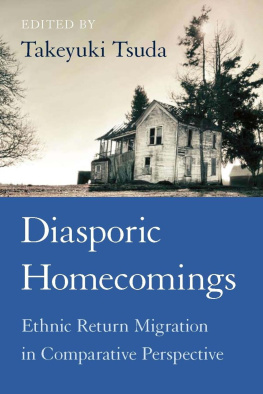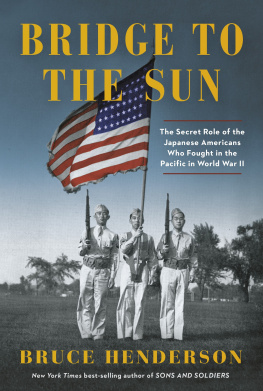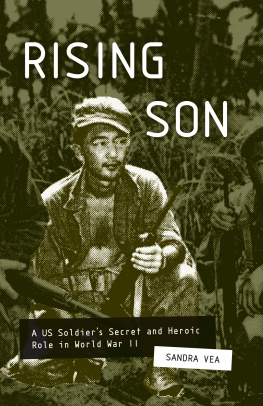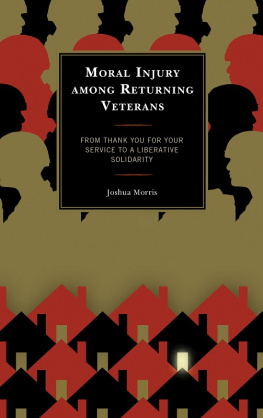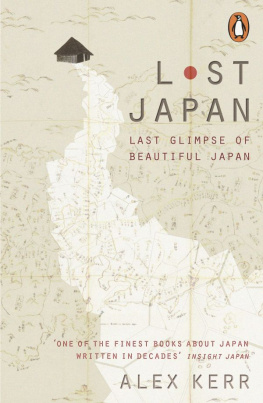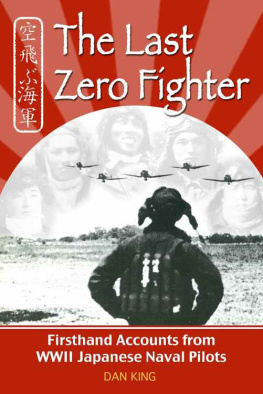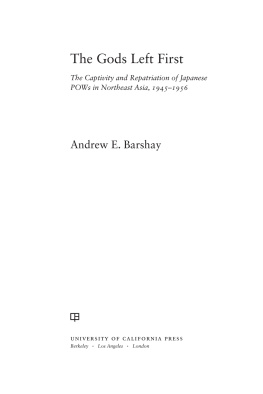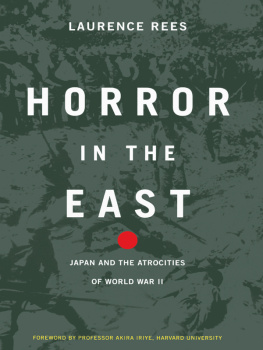HOMECOMINGS
Studies of the Weatherhead East Asian Institute, Columbia University
Studies of the Weatherhead East Asian Institute, Columbia University
The Studies of the Weatherhead East Asian Institute of Columbia University were inaugurated in 1962 to bring to a wider public the results of significant new research on modern and contemporary East Asia.
Homecomings
THE BELATED RETURN OF JAPANS LOST SOLDIERS
Yoshikuni Igarashi
Columbia University Press
New York
Columbia University Press
Publishers Since 1893
New York Chichester, West Sussex
cup.columbia.edu
Copyright 2016 Yoshikuni Igarashi
All rights reserved
E-ISBN 978-0-231-54135-0
Ishihara Yoshir, Lonely Now (Sabishii to ima), Song of a Ringing in My Ears (Miminari no uta), and Position (Ichi) reprinted by permission of Tanaka Mironu.
Library of Congress Cataloging-in-Publication Data
Names: Igarashi, Yoshikuni, 1960 author.
Title: Homecomings : the belated return of Japans lost soldiers / Yoshikuni Igarashi.
Description: New York : Columbia University Press, 2016. | Series: Studies of the Weatherhead East Asian Institute, Columbia University | Includes bibliographical references and index.
Identifiers: LCCN 2015050682 | ISBN 9780231177702 (cloth : alk. paper)
Subjects: LCSH: World War, 19391945Forced repatriation. | RepatriationJapanHistory20th century. | Return migrationJapanHistory20th century. | World War, 19391945Prisoners and prisons, Soviet. | Prisoners of warJapanHistory20th century. | Prisoners of warSoviet UnionHistory20th century. | JapanSocial conditions1945
Classification: LCC D809.J3 I35 2016 | DDC 940.54/7247089956dc23
LC record available at http://lccn.loc.gov/2015050682
A Columbia University Press E-book.
CUP would be pleased to hear about your reading experience with this e-book at .
COVER IMAGE:
Courtesy of U.S. National Archives
CONTENTS
Without the generous help and intervention of so many people, it would not have been possible to complete my long journey. Here I express my deep gratitude only belatedly. I would first and foremost like to thank Kitamura Yoshihiro, an editor at Chikuma shob, who offered me an opportunity to write a monograph for a Japanese audience. His feedback helped to sharpen the focus of this project, and his encouragement guided it to the finish line. I would also like to thank Anne Routon of Columbia University Press for patiently waiting for the English version. Her support for the project and professional guidance greatly helped me at the final stage of manuscript preparation. Whitney Johnson, also at Columbia University Press, deftly handled my questions about how I could best prepare the manuscript.
My colleagues extended helping hands at crucial points. Anne Walthall should know that her kind invitation to contribute an essay to The Human Tradition in Modern Japan set the project in motion. I wrote about Yokoi Shichi for the collection and then decided to systematically examine the belated returns of Japanese soldiers. Anne continued to support my project in various ways. Frank Biese, Alan Christy, Kevin Doak, Victor Koschmann, Thomas Looser, Beatrice Trefalt, Lori Watt, and Sandra Wilson also helped me define my project in its early phase. Noriko Aso, Wesley Sasaki-Uemura, and Gerald Figal read the manuscript in part or whole and provided stylistic as well as substantive comments. Jennifer Fay read an early version of and helped me find a better conceptual focus for the argument. I am especially grateful that Mark Schoenfield combed through the chapter drafts line by line, critically engaging with my argument. In the final phase of the project, Faith Barter rendered much needed copyediting help, removing the holes and leaps in my argument. The two anonymous readers at Columbia University Press offered thorough and insightful comments on the manuscript. The collective wisdom of my colleagues left indelible marks on this book, but of course, all the mistakes are mine.
I also would like to express my gratitude for the hospitality and encouragement that I received in Japan. Uno Kuniichi was generous enough to discuss the Japanese version of this book in his essay on biopolitics. Igarashi Akio has long been a gracious host for numerous overseas-based researchers, including myself. Kawamura Kunimitsu and the faculty of the Japanese Studies Division of Osaka University gave me opportunities to present my ongoing research and hosted me as a visiting scholar in 2010. Nagaoka Takashi provided me with long-distance help in relation to my last-minute research needs. And on one afternoon during May 2012, Yokoi Mihoko kindly shared the personal memories of her late husband, Yokoi Shichi.
Many people provided logistic support for the project in various forms. I thank Jim Toplon and the Interlibrary Loan staff of Vanderbilt University for handling literally hundreds of my requests; librarian Yuh-Fen Benda for helping me obtain secondary sources; Frank Lester for assisting with references; Todd Dodson of Vanderbilt Universitys IT department for calmly responding to my distress calls during computer emergencies; Carol Beverly, also of the IT department, for transferring scores of VHS tapes to discs; and Martin Hinze for transforming my hand-drawn maps into camera-ready versions.
I also am grateful for the generous financial support that I received for this project, which included a research fellowship from the Japan Foundation and two research scholar fellowships from Vanderbilt University. These fellowships and Vanderbilt Universitys generous research leave policy allowed me to focus fully on researching and writing this book for extended periods.
Finally, my thanks to Teresa, Maya, and Kaita for being the biggest source of joy in my life. Wherever you are is my home.
In transcribing Japanese and Chinese names, I follow the local custom of placing the family name first. But when the work is written in English, the authors name (e.g., my name) is cited with the given name first.
In this book, I use the term Asia Pacific War, rather than the conventional designations of World War II or Pacific War, in order to underscore the fact that Japan had already been at war with China for several years when it attacked British Malaya, Hong Kong, and Pearl Harbor in 1941. The Asia Pacific War began with the escalation of the Sino-Japanese conflict in 1937 and ended with Japans surrender to the Allied powers in 1945.
Area under Japanese control, spring 1942.
Locations of labor camps cited in the text.
Returnees from the Soviet Union at Maizuru Port, December 1, 1953. The original photo that appeared in the Yomiuri shinbun had been damaged, so another Yomiuri photo of the eventmost likely taken a moment before or after the printed version and identical in compositionis reproduced here. (Courtesy of the


